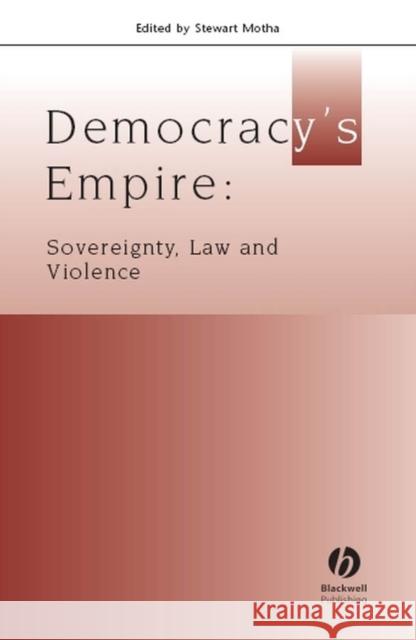Democracy's Empire: Sovereignty, Law, and Violence » książka
topmenu
Democracy's Empire: Sovereignty, Law, and Violence
ISBN-13: 9781405163132 / Angielski / Miękka / 2007 / 176 str.
The essays in this volume take on the challenge of explaining the current formation of the relation between sovereignty, law and violence in what is termed 'Democracy's Empire'.
- Contains a situated discussion of the institution of democracy and related
juridico-political problems
- Examines the historical and philosophical legacies which inform Democracy's Empire - such as the Roman Republic, the separation between Church and State in the enlightenment, formations of revolutionary violence, and the relation between norm and exception
- Poses the problem of violence and death at the heart of the institution of democracy including examples such as South Africa and Iraq
- Offers a mixture of historical and philosophical treatment of democracy as a juridical problem of constitutional violence











